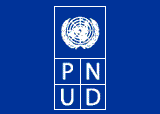Reuters
Venezuelan poll body approves Chavez referendum
By Patrick Markey
CARACAS, Venezuela, Nov. 27 — Venezuela's election authorities agreed
on Thursday to hold in February a nonbinding referendum demanded by
the opposition on whether President Hugo Chavez should resign, an
option dismissed by the populist leader who refuses to step down.
The consultative vote, scheduled for Feb. 2, would not legally force
Chavez from office. But his foes believe a decisive rejection would
deliver a political defeat that could press the leftist president into
resigning and trigger elections in the world's No. 5 oil exporter.
Alfredo Avella, president of the National Electoral Council, said the
institution that oversees elections agreed to stage the popular
referendum on the question of whether Chavez should resign immediately
from office.
The proposed referendum will likely become caught up in fierce legal
wrangling in the Supreme Court and the National Assembly as the
government contests its validity.
The referendum has become the latest focus of the long-running
political conflict between Chavez, a former paratrooper elected in
1998, and his enemies who accuse him of dictatorial rule and blame his
left-wing reforms for destroying the nation's economy.
Opposition leaders earlier this month handed in more than 2 million
signatures demanding the immediate vote. They have threatened to stage
a general strike on Monday if the government does not accept the
referendum and a broader electoral accord during ongoing peace talks
brokered by the Organization of American States.
Opposition officials could not be reached after the electoral council
ruling, but they insisted on Wednesday they would press ahead with
their planned strike. They are also demanding the government reverse a
recent military takeover of the Caracas city police from the capital's
anti-Chavez mayor.
Opening the way for possible legal salvos from the government,
electoral council member Romulo Rangel disagreed with the decision
because he said the elections body failed to met constitutional
requirements.
''This in my personal opinion does nothing but fail the rights of the
citizens calling for the referendum and puts the institution on the
margins of the law,'' he told a news conference early on Thursday.
CHAVEZ: NO TO IMMEDIATE VOTE
Chavez has repeatedly insisted the constitution only allows for a
revocatory or binding referendum on his mandate in August 2003 --
halfway through his current term.
The tough-talking leader, who survived a coup by rebel officers in
April, said on Sunday he would not resign even if 90 percent of the
electorate voted against him in a consultative poll.
''Even if the electoral council accepts the question as valid, even if
the Supreme Court considers the question valid, even if they get 90
percent of the vote with their referendum, I will not resign,'' the
president said.
Fours years after his landslide election victory, the president's
popularity has plummeted as the nation's economic troubles mount and
the opposition steps up its campaign to oust him from office.
Chavez says he retains strong support for his policies aimed at easing
poverty and stamping out corruption. Millions of poorer voters still
see his self-styled ''revolution'' as the path to a better life.
The level of support for Monday's planned walkout remains uncertain.
Anti-Chavez executives in the vital state oil industry have left the
decision whether to participate up to individual workers, while
blue-collar oil workers appear split.
Tensions have flared in recent weeks since the government ordered
troops into the streets of Caracas to enforce the police takeover. At
least two people were killed and dozens were wounded in clashes this
month involving militants from both sides.
Copyright 2002 Reuters Limited. All rights reserved. Republication or
redistribution of Reuters content is expressly prohibited without the
prior written consent of Reuters.
http://famulus.msnbc.com/FamulusIntl/reuters11-27-134129.asp?reg=AMERICAS


